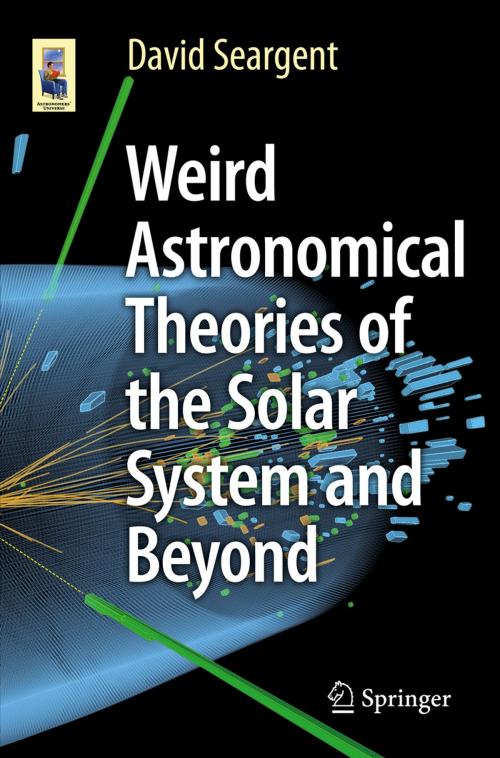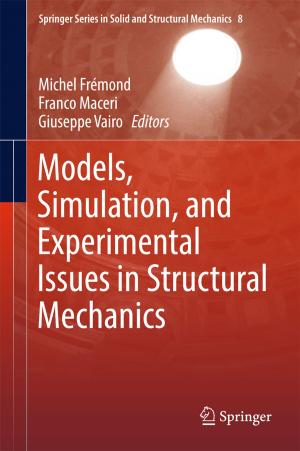Weird Astronomical Theories of the Solar System and Beyond
Nonfiction, Science & Nature, Science, Physics, Astronomy, Biological Sciences, Evolution, Nature| Author: | David Seargent | ISBN: | 9783319252957 |
| Publisher: | Springer International Publishing | Publication: | December 26, 2015 |
| Imprint: | Springer | Language: | English |
| Author: | David Seargent |
| ISBN: | 9783319252957 |
| Publisher: | Springer International Publishing |
| Publication: | December 26, 2015 |
| Imprint: | Springer |
| Language: | English |
After addressing strange cosmological hypotheses in Weird Universe, David Seargent tackles the no-less bizarre theories closer to home. Alternate views on the Solar System's formation, comet composition, and the evolution of life on Earth are only some of the topics he addresses in this new work. Although these ideas exist on the fringe of mainstream astronomy, they can still shed light on the origins of life and the evolution of the planets. Continuing the author's series of books popularizing strange astronomy facts and knowledge, *Weird Astronomical Theories *presents an approachable exploration of the still mysterious questions about the origin of comets, the pattern of mass extinctions on Earth, and more. The alternative theories discussed here do not come from untrained amateurs. The scientists whose work is covered includes the mid-20th century Russian S. K. Vsekhsvyatskii, cosmologist Max Tegmark, British astronomers Victor Clube and William Napier, and American Tom Van Flandern, a specialist in celestial mechanics who held a variety of unusual beliefs about the possibility of intelligent life having come from elsewhere. Despite being outliers, their work reveals how much astronomical understanding is still evolving. Unconventional approaches have also pushed our scientific understanding for the better, as with R.W. Mandl's approaching Einstein with regard to gravitational lensing. Even without full substantiation (and some theories are hardly credible), their hypotheses allow for a new perspective on how the Solar System became what it is today.
After addressing strange cosmological hypotheses in Weird Universe, David Seargent tackles the no-less bizarre theories closer to home. Alternate views on the Solar System's formation, comet composition, and the evolution of life on Earth are only some of the topics he addresses in this new work. Although these ideas exist on the fringe of mainstream astronomy, they can still shed light on the origins of life and the evolution of the planets. Continuing the author's series of books popularizing strange astronomy facts and knowledge, *Weird Astronomical Theories *presents an approachable exploration of the still mysterious questions about the origin of comets, the pattern of mass extinctions on Earth, and more. The alternative theories discussed here do not come from untrained amateurs. The scientists whose work is covered includes the mid-20th century Russian S. K. Vsekhsvyatskii, cosmologist Max Tegmark, British astronomers Victor Clube and William Napier, and American Tom Van Flandern, a specialist in celestial mechanics who held a variety of unusual beliefs about the possibility of intelligent life having come from elsewhere. Despite being outliers, their work reveals how much astronomical understanding is still evolving. Unconventional approaches have also pushed our scientific understanding for the better, as with R.W. Mandl's approaching Einstein with regard to gravitational lensing. Even without full substantiation (and some theories are hardly credible), their hypotheses allow for a new perspective on how the Solar System became what it is today.















